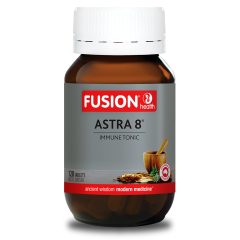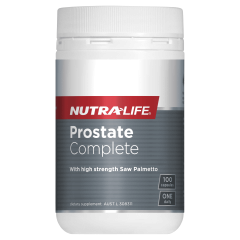Description
Magnesium Complete Capsules
An advanced broad-spectrum Magnesium supplement providing 300mg of elemental Magnesium from Amino Acid Chelate, Orotate, Phosphate and Oxide forms.
Magnesium is essential for health and one of the four minerals (Calcium, Magnesium, Sodium and Potassium) needed for muscular and nerve response functions within the body.
Low levels of Magnesium may be associated with blood pressure problems, muscle cramps and spasms, fatigue and sleep disturbances.
- Healthy heart function
- Muscle relaxation
- Sleep and relaxation
- Nervous system balance
- PMS associated with cramps and changes in mood
- Healthy mood
- High potency – provides 300mg of elemental Magnesium in each capsule
- Provides 4 types of Magnesium for optimal absorption and distribution in the body
- Easy to swallow capsule
- Protects heart health
- Supports relaxation and feelings of calm
- Supports a restful nights sleep
- Helps protect against nervous tension
- Helps protect against anxiety, cramps, spasms and tired muscles
| Each capsule provides: | |
| Total elemental Magnesium | 300mg |
| Magnesium (as Oxide) | 197mg |
| Magnesium (as Orotate) | 8mg |
| Magnesium (as Phosphate) | 21mg |
| Magnesium (as Amino Acid Chelate) | 75mg |
Formulated without: Artificial colours, flavours, gluten, yeast or dairy products.
Take one capsule daily or as directed by a healthcare professional. Always read the label. Use strictly as directed. If symptoms persist, consult your healthcare professional.
- Those taking medications or with established medical conditions should consult their healthcare professional
Q What are some of the signs of a Magnesium deficiency?
A Magnesium is one of the most common nutritional deficiencies. Common signs and symptoms relating to the musculoskeletal system include tense muscles, twitches, muscle soreness/weakness, cramps, spasms and tension headaches. Symptoms involving impaired smooth muscle contraction can include constipation and menstrual cramps, and cardiovascular symptoms may involve high blood pressure and palpitations. Anxiety,restless sleep and depression are common signs affecting the nervous system, and other general symptoms include breast tenderness and carbohydrate/sweet cravings, especially for chocolate.
Q Who is at risk of low Magnesium levels?
A Consuming high levels of caffeine, alcohol, sugar,sodium, or soft drinks increases the risk of Magnesium deficiency.Those suffering from PMS or prolonged stress, and people on certain medications including diuretics, corticosteriods, antibiotics, and oral contraceptives can be low in Magnesium. Pregnancy and lactation increases the need for Magnesium.
Q Why does the body need Magnesium?
A Magnesium is the 4th most abundant mineral in the body, where it exists primarily in bone, and the remainder lies in tissues in the muscle and soft tissues. Magnesium is an essential component of over 300 essential enzymatic reactions and is an integral part of the every major biological process. In addition, Magnesium aids the processes of nerve conduction, regulating blood vessel wall tone, and nerve and muscle function. Demand for Magnesium increases during stress, nervous tension and anxiety, and is an important mineral needed for maintaining bone density and healthy heart function
Magnesium is beneficial in helping to manage premenstrual tension and cramps, low blood sugar (hypoglycaemia) and other conditions including those associated with Magnesium deficiency or loss including some heart health problems, sleeplessness and digestive problems and diarrhoea.
Related Products
-
Sale!

Fusion Astra 8 Tablets
Price range: $32.46 through $55.87Select options This product has multiple variants. The options may be chosen on the product page -
Sale!

Nutra-life Prostate Complete (100 Capsules)
Original price was: $112.95.$67.99Current price is: $67.99.Add to cart -

Balance Ultra Ripped Protein (1kg)
$112.95Select options This product has multiple variants. The options may be chosen on the product page



